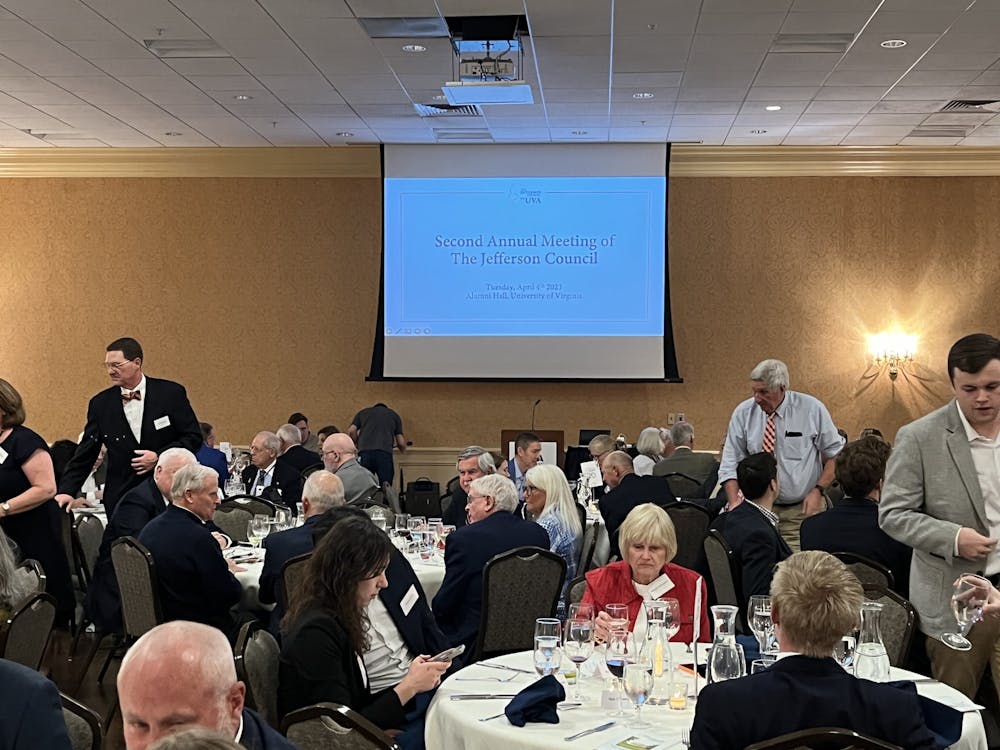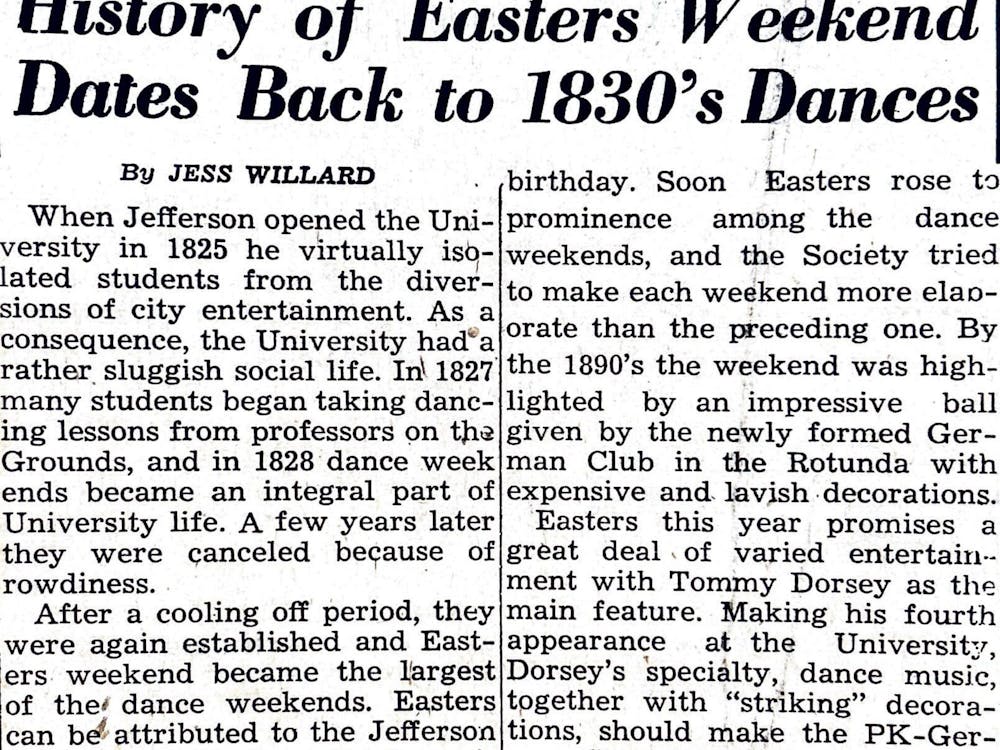The Jefferson Council held their second annual meeting Tuesday — attacks on diversity, equity and inclusion initiatives at the University were the subject of many of speeches delivered by guest speakers. Speakers used a variety of terms such as “social justice warriors,” “wokesters” and “leftist” to describe their perceived opponents in a “struggle for the soul of our University.”
The meeting consisted of a series of guest speakers before the evening’s keynote speaker — Glenn Loury, a professor at Brown University noted for his conservative views on topics like affirmative action and “cancel culture.”
Connor Murnane, director of engagement and mobilization for the Foundation for Individual Rights and Expression, said DEI programming has “sinister nature and perplexing components.” FIRE is a nonprofit group dedicated to promoting free speech in American culture.
Murnane also compared DEI initiatives to a cancerous tumor.
“These students arrive at college primed with [social justice] attitudes and demand that the administrators shield them from the kinds of non-physical harm which they have been taught to believe in,” Murnane said. “DEI admin often oblige, reaffirming the students’ victim narratives.”
Board of Visitors member and alumnus Bert Ellis is the president emeritus of the Jefferson Council — a conservative group of alumni. The Jefferson Council is dedicated to preserving the legacy of Thomas Jefferson and supporting the Honor system.
Ellis’s appointment to the Board was the subject of many controversies — most recently when his text messages relating to his Board position were publicly released via a Freedom of Information Act. In one message, Ellis wrote that he planned to “raise hell” with the Board against “super liberal” faculty at the University.
Ellis and other guest speakers referenced the conflict surrounding Ellis’s Board appointment, including when a subcommittee of the Virginia State Senate voted to remove Ellis’ name from the official list of appointees to the Board.
“[The Virginia State Senate] lost the chance to shoot me in the head, so they’ll be loaded for bear and we’re gonna have to work on that,” Ellis said.
After the evening’s keynote presentation — a speech from Loury entitled “Addressing Black Inequality, Embracing Black Patriotism” — there was a Q&A section during which one audience member spoke specifically about the University’s affirmative action admission policies, saying that affirmative action is a “great wound” to Black people. The audience member said if he had to choose between three doctors and he only knew their race, he would not choose the Black doctor.
Loury said he could understand the argument for affirmative action in the 1970s, but that it was responding to a state of emergency from which we are a half century away now. He referred to affirmative action instead as “affirmative distraction.”
“Don’t patronize me,” Loury said. “ I’m not a child. Don’t treat me like a child, don’t treat me like a ward. Don’t treat my son and my daughter like a ward… [Affirmative action] is not equality. This is patronization. This is treating people like they’re children.”
In the context of university admissions, affirmative action policies mean that application readers will consider student backgrounds, such as race, when evaluating an application. Affirmative action has been a controversial topic in higher education — the Supreme Court is expected to deliver a decision on affirmative action case Students for Fair Admissions v. Harvard this summer.
The University practices “affirmative action” in hiring processes per the federal Equal Opportunity clause. The Admissions Office website notes that diversity within the student body is “central to the goals” of the University, and that the University seeks to recruit classes with “a wide variety of backgrounds, experiences, and talents.” There is no specific policy about “affirmative action” listed anywhere on the admissions website.
Loury declined to comment for a follow-up question.
Select students were also invited to share testimonials about their experience as conservative students in the classroom, including third-year College student Vidar Hageman and fourth-year Engineering student Paul Deaton. Nick Cabrera, president of Young Americans for Freedom and fourth-year College student, also spoke on his experiences with DEI at the University.
“The University has lost its founding Judeo-Christian values,” Cabrera said. “We must rebuild them and rid the University of the DEI initiatives that are a guise of discrimination.”
The $150 per plate event, attended mainly by Jefferson Council members, had catered dinner and an open bar.







